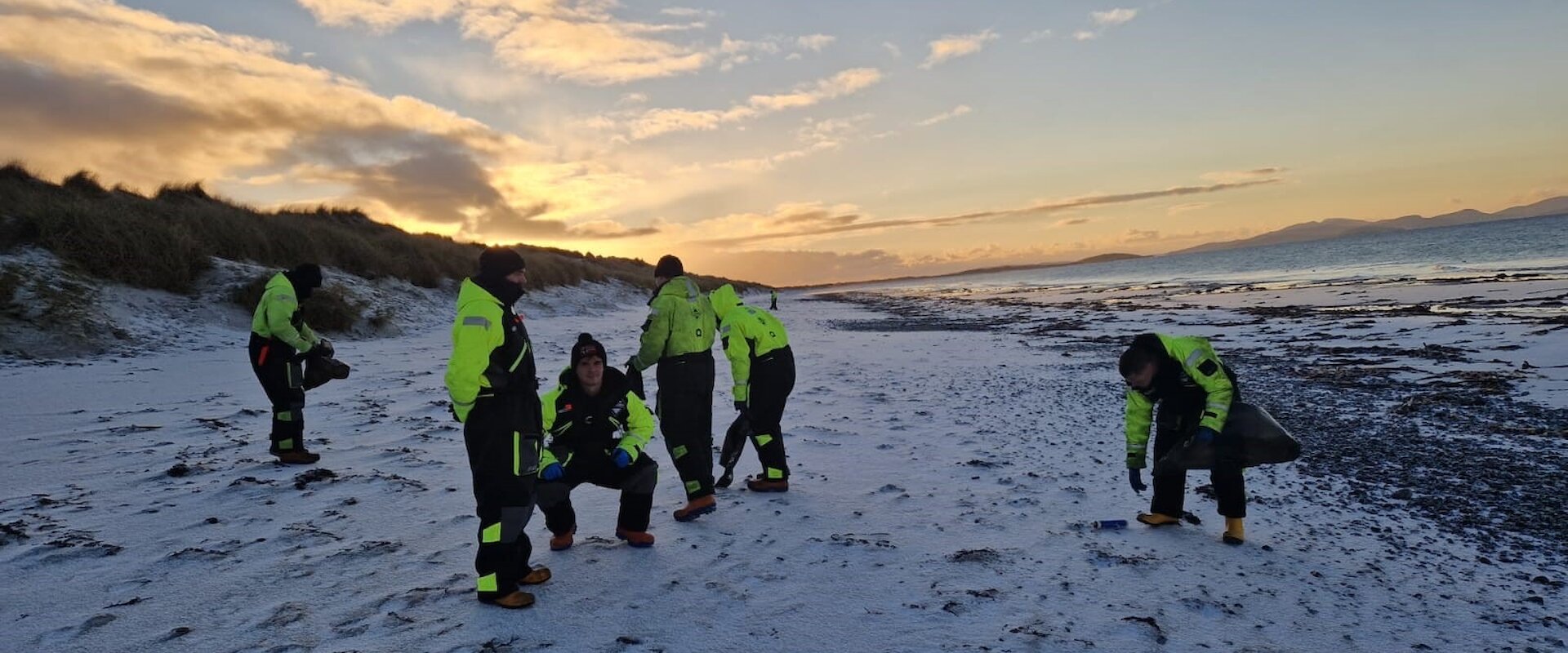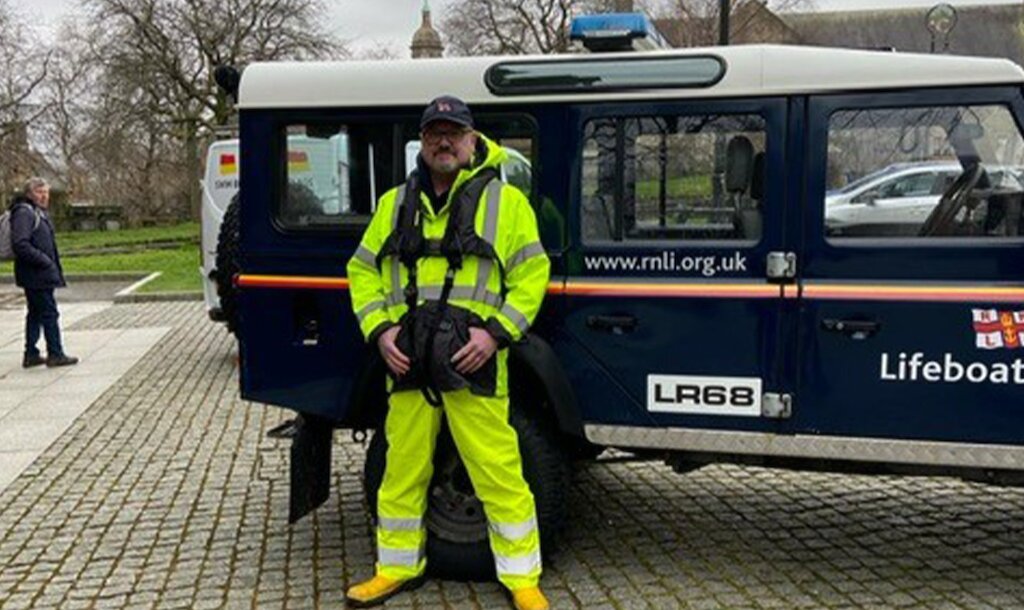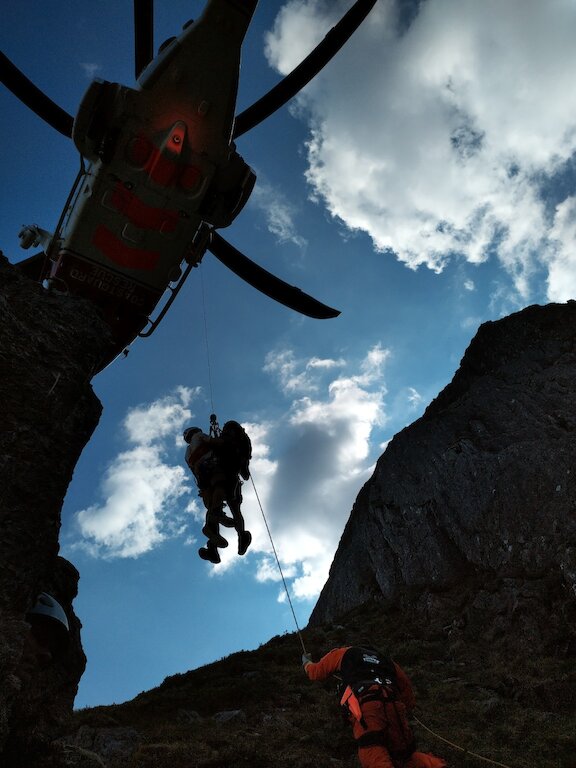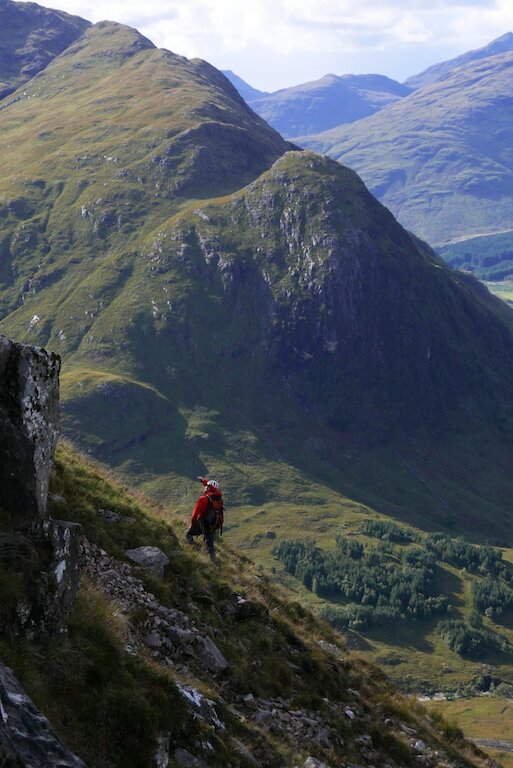Salmon farmers are privileged to live in the places they work so they have a personal interest in protecting the marine environment and maintaining the way of life in the rural and coastal communities.
Someone once said “you vote in elections once a year, but when you volunteer, you vote every day about the kind of community you want to live in.”
This is exactly the ethos of Scotland’s salmon farming family. And with 2,500 people working directly within the Scottish salmon sector and living in our farming regions there are plenty of pairs of hands ready to give their time to benefit and build the community they want to live in.
The United Nations’ International Volunteer Day, on Thursday 5 December, is an ideal time to highlight the volunteering efforts of our farmers who share their skills and experience to make a valuable contribution to the communities they live and work in, sometime in multiple volunteering roles.
Blue lights
Many salmon farmers spend their day on the water and are qualified and experienced in operating safely at sea. Their proximity to shorebases up and down the west coast of Scotland, the Western Isles, Orkney and Shetland make them ideal candidates to crew on RNLI lifeboats and with HM Coastguard, as well as a range of other ‘blue light’ roles including as retained firefighters, community first responders with the Scottish Ambulance Service and with Mountain Rescue – essential services that are helping to keep people safe.
In Shetland, Scottish Sea Farms’ Liam Graham is contracted to work for the Scottish Fire and Rescue Service on top of his job as a Farm Technician at Setterness.
Although he is on call 90 hours a week, he must be within five minutes of the fire station in Lerwick so can only be available when he’s at home. But sometimes firefighting has interrupted work.
‘The company recognises that the communities they are operating in are not big cities that have full-time emergency services. It’s the guys who are working on salmon cages or on building sites who are covering our communities for the emergency services,’ he said.
And in Fife, Rob Douglas (pictured below) works for Mowi at their Rosyth processing site and for the past five years has been a volunteer tractor driver and shore crew for the RNLI station in Kinghorn where he lives.
Rob said: ‘My job within the RNLI is to ensure that when the pager goes off, the Lifeboat gets to sea safely as quickly as possible and then to recover the boat and make sure the whole rig is ready to launch again for the next shout.
‘The role is exciting, sometimes challenging and frequently hugely rewarding, especially when you know that you were part of a machine that saved someone’s life. Obviously, there are times when we can’t and that is the flip side of the coin that we have to face’.
2024 is the 200th anniversary of the founding of the RNLI and Rob was honoured to be chosen to represent the RNLI in Scotland in the Guard of Honour at the celebration service at Glasgow Cathedral.
It’s not just the emergency services covering rural Scotland that our farmers support – they also volunteer their time with community councils, local charities and non-profit groups. Our people also spend many hours every week supporting local community sports teams, often coaching young people. These bodies are part of the fabric of so many communities the length and breadth of Scotland.
Beach cleans
Salmon farmers are used to working in remote coastal sites and are often the only people who have the skills and vessels to reach inaccessible stretches of our coastline.
Earlier this year Salmon Scotland revealed Scottish salmon farmers volunteered the equivalent of 83 working days clearing away more than 23 tonnes of litter from Highlands and islands beaches last year as part of efforts to keep the areas they live and work clean. Companies have also participated in the Great British Beach Clean across their farming areas.
Another volunteer, Iain Flack, a farm manager with Scottish Sea Farms in Kishorn said he and his team had a vested interest in protecting the coastal environment and enjoyed working with other volunteers to help keep the shoreline pristine.
‘It’s not a question of engaging with the local community, we are part of the local community. A majority of the farm team live in the area and it’s important that we look after the environment we live and work in.
‘The more of us who give a few hours of our time doing our bit to look after our local beaches, the bigger the difference we’ll make.’
The vast majority of marine litter is either washed up on the shore or left behind by tourists and other visitors. Among the more unusual items recovered have been a car licence plate, engine belt, windscreen and steering wheel, as well as a barbecue, discarded shoes and a variety of children’s toys. Large quantities of wet wipes, which are often wrongly flushed down the toilet by homeowners despite containing plastic and are not biodegradable, are a growing part of the litter on Scotland’s beaches.
Mowi Scotland was praised by Highland Council for helping to clear more than 300 tyres illegally dumped down a steep bank from the A82 onto the shores of Loch Ness, with Mowi providing both the people and the specialist vessels and vehicles to access the shoreline and deal with the fly-tipping, which took place at a lay-by near Drumnadrochit at the end of January.
In 2020 salmon farmers made a sustainability charter commitment to avoid marine debris coming from their own farms and to recover any reported items. Members of the public can report aquaculture debris any time via Salmon Scotland’s marine debris hotline.
Volunteering is not a one-way street: yes, voluntary organisations and charities benefit, and some simply couldn’t operate without the people who give their time and skills for free. But our farming companies are richer for having their staff picking up new skills, experiences and the sense of giving back to the local community that volunteering brings.
And remember; some of those ‘blue light’ volunteers will be on-call on over the festive period.




